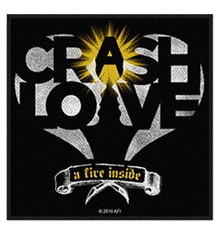

Sing the Sorrow, their DreamWorks debut, isn't the wholesale departure from AFI's roots that some longtime fans griped about.
#Afi sing the sorrow zip download#
With that knowledge in hand, AFI faced their demons with no expectation of winning, and no shame in losing to them either.Purchase and download this album in a wide variety of formats depending on your needs. Poignantly, Sing the Sorrow acknowledged the bleak odds that a cold, unfeeling universe stacks against us all. They wallowed, but more so in gloom than self-pity. As they approached their peak, AFI feared there’d be nowhere to go but downwards.Īnd so, the band plunged, diving and writhing straight into the belly of their personal demons. Following “Great Disappointment” came the album’s highlight, “Paper Airplanes (Makeshift Wings),” where those varied textures all coalesced into a thrilling, terrifying fall from grace. Midway through a track, the clamor would dissipate, the tempo would be slowed or switched into an entirely new time signature as in “The Great Disappointment.” Equally varied was Havok’s impressive delivery, alternating between yelps and yells and a genuinely moving tenor. That moodiness reflected in the various elements at play in each song. Locked in these confines, Sing the Sorrow made do, and was naturally very moody about it. Perpetually coming up short, they come to dismal conclusions, like the concept of one’s sin outliving their goodwill: “ I know I’ll leave a stain/ because I bleed.”

In response, AFI sought out the silver linings where they could. “ Just like all I loved/ I’m make believe,” was an epiphany, that benevolence is impossible, and it offered no solace nor solution. Whereas much of the aughts scene concerned itself with self-pity and unhealthy relationships, Sing the Sorrow went big picture, confronting life’s unavoidable depravity and banality. Guitarist Jade Puget would also keep those famous bangs. As fellow 2000s glampire Gerard Way would said a few years later – “ Paint it black and take it back.” With a budget, Bruce Vig and the late Jerry Finn, AFI channeled their somber spirits into sweeping, exhilarating and melodic rock, setting off on a path the band would largely stick to, as would side projects like Blaqk Audio and Dreamcar. Life became hell and humans became hell-mouths, agents of the world’s corruption. Their glamorization of the macabre would later be shared by acts like Aiden, Alessana and I Am Ghost, where fallen angels and undead epics enthralled the imaginations of those raised on Tim Burton, Goosebumps and Buffy. They enlivened their sadness (“Dancing Through Sunday”) and embraced the apocalypse (“Death of Seasons”). With flames reignited, the band leaned further into their dramatization of melancholy and the dark. If you’ll entertain a corny metaphor, that angst combined with the “fire inside,” “ All form one dark flame.” Typical punk and rock sensibilities tend to direct frustrations outward at the man, whilst the emo method redirects that energy inward, where it festers and congeals as angst. Loss of faith, depression and fatalism coated the album in ash and scars, which the band glammed up with expansive melodies and a sharp red motif. Sing the Sorrow, their sixth album and the start of wider recognition, despaired over themselves instead. By 2003, AFI had spent nearly a decade as breakneck, smart-mouthed punks raging against shit friends and poseurs.


 0 kommentar(er)
0 kommentar(er)
